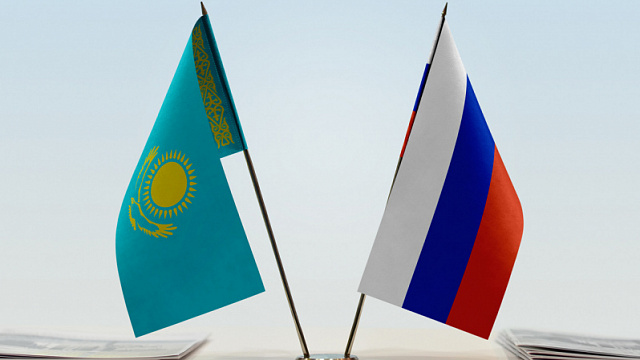148 total views today
By Oche Echeija Egwa
Rio de Janeiro is reputed for cultural tourism, nature’s beauty and hospitality. The old city in the Republic of Brazil easily dwarfs the political capital, Brasilia, and the sprawling commercial hub, Sao Polo, to host international events.
From July 6-7, 2025, Rio de Janeiro played host to 10-member global south economic bloc of original members – Brazil, Russia, China, and India, South Africa (BRICS), and the newbies – Egypt, Ethiopia, Iran, Saudi Arabia and United Arab Emirate.
The membership of BRICS increased from five to 10 in 2024.
Nigeria is steadily inching towards becoming a member of the south-south bloc, which since its inception in 2009, has focused on re-ordering the old-world order, which has been structured in favour of the West.
On the first day of the summit, President Bola Tinubu assured the bloc of Nigeria’s full support for a new world order that prioritises humanity over global material status, particularly on issues of healthcare. The President noted that quality healthcare should not be the privilege of a few, but the right of all.
Tinubu called for a re-evaluation of the current global structure, the financial system and health care distribution, urging more consideration, equity and inclusion for poor and emerging economies, particularly Africa.
He said: “Nigeria, therefore, associates with what I have heard here today, and all that has been taking place in BRICS. The next issues are of financial restructuring, and re-evaluation of the global structure.’’
The President noted that issues of environmental degradation, climate crisis and global healthcare inequalities were shared concerns, and pertinent to Africa. “Africa has contributed the least to global emission but suffers the most,’’ he added.
In January 2025, Nigeria started the journey of membership by becoming a partner of the BRICS. Nigeria became the ninth partner country of BRICS, joining Belarus, Bolivia, Cuba, Kazakhstan, Malaysia, Thailand, Uganda, and Uzbekistan.
The partner-country category was created at the 16th BRICS Summit, held in Kazan in October 2024.
As a partner, Nigeria, like the 10-member countries, collaborate on issues of related development, finance, trade, global governance, and south-south cooperation. Although, it has no voting rights.
The south-south countries had always consistently position themselves to counter western dominated institutions, like the G7, and the International Monetary Fund (IMF) with the strength of a collective voice, and pooled resources.
At the summit, the Brazilian President, Inacio Lula Da Silva criticised the global trend of excessive military budgets, noting “It is easier to allocate five per cent of GDP to military spending than to commit the 0.7 per cent promised for Official Development Assistance… resources do exist—they are simply not made available due to a lack of political will.”
Lula Da Silva positioned BRICS as a “force capable of promoting peace and of preventing and mediating conflicts,” while advocating reform of the UN Security Council to make it more legitimate, representative, and democratic.
In terms of global influence, BRICS is gathering more weight from its numbers to courageously negotiate better trade conditions, and respect on global geo-political issues.
In less than 16 years of existence, BRICS has a voice that can no longer be ignored. Importantly, the bloc has almost half the world’s population, with both India (1.4 billion), and China (1.4 billion), playing first and second, respectively. The over 3.5 billion people in the BRICS countries constitute 45 per cent of the world’s population.
By the end of 2024, more than $28 trillion, which is about 30-35 per cent of global GDP (PPP terms) came from the south-south bloc. The countries are also the major exporters of oil, gas, food, and manufactured goods. A healthy amount of the foreign reserves is under the control of the south-south child of necessity, largely held by China and Russia.
Remarkably, major oil exporters, like Russia, Saudi Arabia, and Iran are members of the bloc, where Nigeria is exploring more options and opportunities for gas exploration and export. Statistically, Nigeria’s gas reserve is more than crude oil.
The BRICS members also control key resources like lithium, cobalt, rare earth, and iron. Another focus of the President Tinubu’s administration is to reposition the solid mineral sector for global competitiveness.
The President’s longtime ally, Dele Alake, who is the Minister of Solid Minerals Development, has been vehement, vociferous, and battle-ready in turning the tables in the last two years to ensure more decency, accountability and transparency in the sector.
Apart from tackling illegal exploration, injecting technology and automation into processes and services, Alake has also introduced special marshals to provide more specified security services, and he is mobilising resources, home and abroad, as a marketer.
President Tinubu, who was invited to the 17th summit by the President of Brazil, highlighted the need for a new path of justice anchored on fairness, sustainable technology transfer and accessible financing such that emerging economies can fully benefit from the various initiatives.
“The African continent is creating the path through the African carbon market initiative and the Great Green Wall. We believe that eventually COP-30 will strengthen our resolve to strategically embrace a healthy global environment.
“Nigeria strongly believes in South-South cooperation. We can, therefore, not be passive participants in global decision making. All these include financial restructuring, debt forgiveness, climate change, environmental and global health care.
“We must be the architect of a future that addresses the specific needs and concerns of youths, which represent 70 per cent of our population in Nigeria. Therefore, we believe that Nigeria remains guided by our long-term vision, 2050, and nationally determined contribution.
“We are taking bold steps to accelerate renewable energy adoption, mainstream climate action, promote nature-based solutions, strengthen urban resilience, champion South-South cooperation, align with global renewal framework and achieving universal health coverage for all,’’ the President stated.
For agriculture, which the administration is mainstreaming with reforms, and policies, Brazil, India and Russia are the global food powerhouses, leading in Research and Development, modern cultivation, processing, packaging, marketing and exportation. President Tinubu affirms that a membership of BRICS was long overdue for economic benefits.
Further challenging the global economic status quo, the members of BRICS are reconsidering the dominance of the dollar in global trade, and some of the countries had already started trading across borders with their local currencies. BRICS is also considering introducing its own currency. Nigeria, and China have been exploring trade without the dollar as means of exchange.
BRICS is also asserting greater influence in global governance forums like the G20, WTO, and UN, demanding more inclusive, multipolar decision-making. The countries also collaborate on technology and infrastructure, and security and defense. Amid the rising global tensions, BRICS has held joint counterterrorism exercises, intelligence-sharing initiatives, and cyber defense dialogues.
At a bilateral meeting with the Brazilian President and some members of his government at the Copacabana Forte before the summit, July 5, President Tinubu highlighted various pending MOUs and agreements that had not been signed, assuring of Nigeria’s readiness to hasten the process.
The President faulted persistent bureaucracy for delayed progress in bilateral relations.
Lula da Silva noted the strong cultural and historical ties between Brazil and Nigeria, regretting that bureaucracy had delayed many opportunities for shared growth. Both Presidents agreed to tackle, and remove the bottle-necks for expansion of interests.
The 17th BRICS Summit was focused on multilateral reforms of the UN, and IMF, sustainable development and green energy collaboration, and boosting BRICS payment systems, by finding an alternative to SWIFT.
As Nigeria works towards full membership of BRICS, in spite of the geo-political tensions that it attracts with the new posture on global issues, President Tinubu affirmed that the best choice would be to safeguard the future of the country, rather than mortgage the hope of millions by fence-sitting.
With the world’s sixth-largest population—and Africa’s largest—as well as being one of the continent’s major economies, Nigeria shares convergent interests with other members of BRICS.
The President was accompanied to the 17th BRICS summit by five governors; Lagos, Babajide Sanwo-Olu; Benue, Hyacinth Alia; Ogun, Prince Dapo Abiodun; Niger, Umar Bago, and Delta, Sheriff Oborevwori.
Others at the summit and sideline meetings were the Minister of Foreign Affairs, Yusuf Tuggar, the Coordinating Minister of the Economy, and Finance, Wale Edun, and Principal Private Secretary, Hakeem Muri-Okunola; Minister of Agriculture, Sen. Abubakar Kyari; Minister of Livestock Development, Alhaji Idi Muktar Maiha; Minister of Industry, Trade and Investment, Dr Jumoke Oduwole and Minister of Communications, Innovation and Digital Economy, Bosun Tijani.
Egwa is an Assistant Director, Information, Office of the Special Adviser to the President on Media and Publicity.












